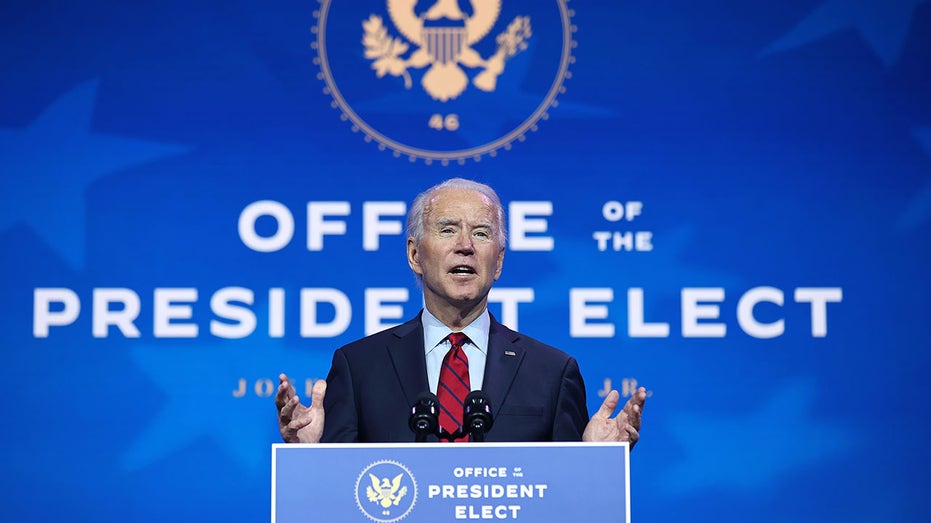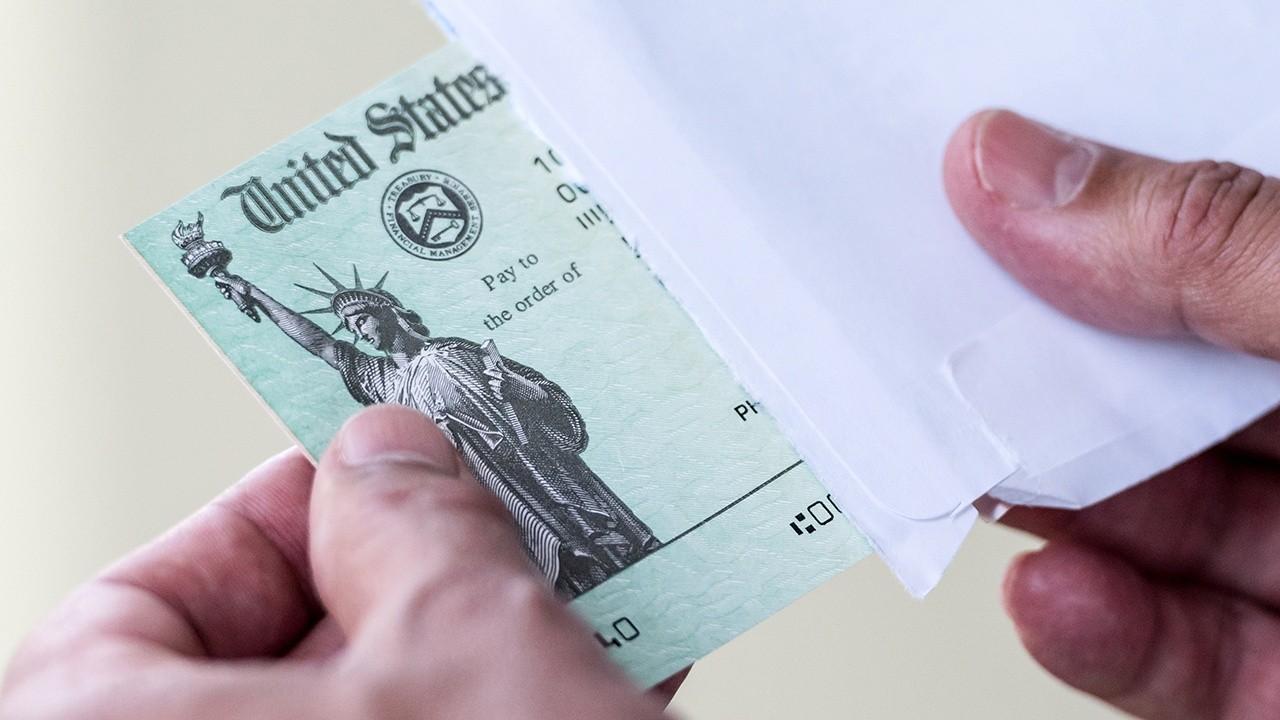Biden says last-minute coronavirus relief bill leaves work for next Congress
Biden called the $900B relief package a 'down payment'
Congress finally passed a $900 billion coronavirus relief package on Monday night after almost six months of stalled negotiations, but President-elect Joe Biden is already pushing for more economic aid, likely setting up an early battle with Republicans next year.
Biden called the agreement, which congressional leaders reached late Sunday after days of in-person meetings on Capitol Hill, a "down payment."
While the $900 billion measure includes a second stimulus check of up to $600 for individuals earning less than $87,000, an 11-week extension of boosted federal unemployment benefits through mid-March and funding for vaccine distribution, it's markedly less ambitious than the $2.2 trillion in spending Democrats maintained was needed.
12 MILLION AMERICANS FACE LOSS OF UNEMPLOYMENT BENEFITS DAY AFTER CHRISTMAS
"Immediately, starting in the new year, Congress will need to get to work on support for our COVID-19 plan, for support to struggling families, and investments in jobs and economic recovery," Biden said in a statement Sunday night. "There will be no time to waste."
Biden has not specified what relief measures he would like to see addressed after he's sworn in on Jan. 20. An official on Biden's transition told The Washington Post that the president-elect wants additional money for "supporting the covid response effort, reopening schools and helping families, businesses, and state and local governments.”

President-elect Joe Biden announces the members of his health team, including his pick for secretary of Health and Human Services Xavier Becerra, at the Queen Theater Dec. 8, 2020 in Wilmington, Del. (Photo by Chip Somodevilla/Getty Images)
Asked recently if he believes the right number for the next relief package is in the billions or trillions, Biden said: “Hundreds of billions of dollars.”
The just-passed bill addresses dozens of issues: It includes $45 billion for transportation needs, $82 billion for schools, $20 billion for vaccine distribution, $13 billion for food assistance and $25 billion in rental assistance. It also extends an eviction moratorium from the Centers for Disease Control and Prevention that was poised to sunset at the end of the year through Jan. 31, 2021.
TOP DEMOCRATS SEE $900B COVID RELIEF PACKAGE AS JUST THE BEGINNING
Top Democrats, including House Speaker Nancy Pelosi and Senate Minority Leader Chuck Schumer, have also made the case for additional relief measures.
Speaking on the House floor Monday, Pelosi called the $900 billion legislation a "first step."
"We need to do more," she said.
But Biden and Democrats will likely face pushback from Republicans who have started to sound the alarm about the nation's already-ballooning national deficit, which totaled a record $3.1 trillion for the 2020 fiscal year. Six Senate Republicans voted against the bill on Monday night, with many citing the expensive price tag as the reason for objecting.
WHAT'S IN THE NEW $900B CORONAVIRUS RELIEF DEAL?
"To so-called conservatives who are quick to identify the socialism of Democrats: If you vote for this spending monstrosity, you are no better," Sen. Rand Paul, R-Ky., said in a speech on the Senate floor that went viral. "When you vote to pass out free money, you lose your soul and you abandon forever any semblance of moral or fiscal integrity."
Still, Senate Majority Leader Mitch McConnell did not rule out the possibility of another round of emergency aid next year.
CLICK HERE TO READ MORE ON FOX BUSINESS
"My view about what comes next is let's take a look at it. I'm happy to evaluate that based upon the needs we confront in February and March," McConnell told reporters on a conference call. "We'll be happy to talk about it. I don't rule it out or rule it in."




















